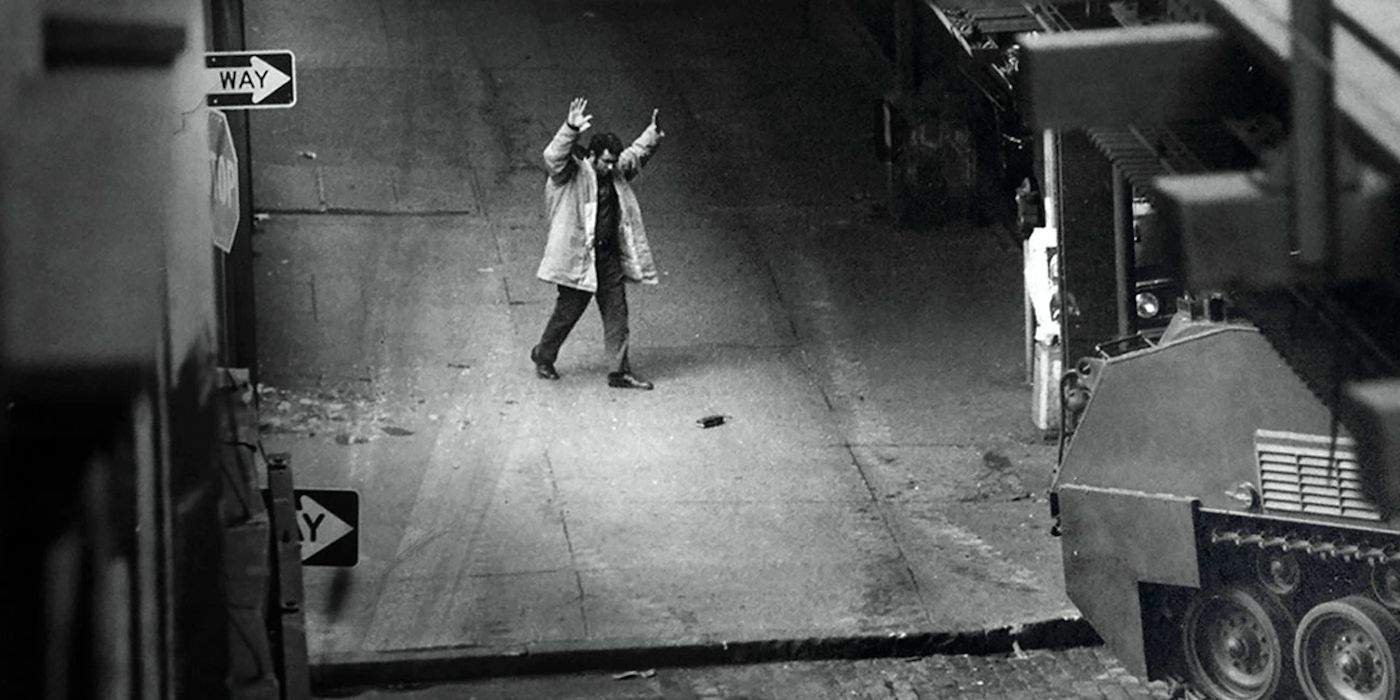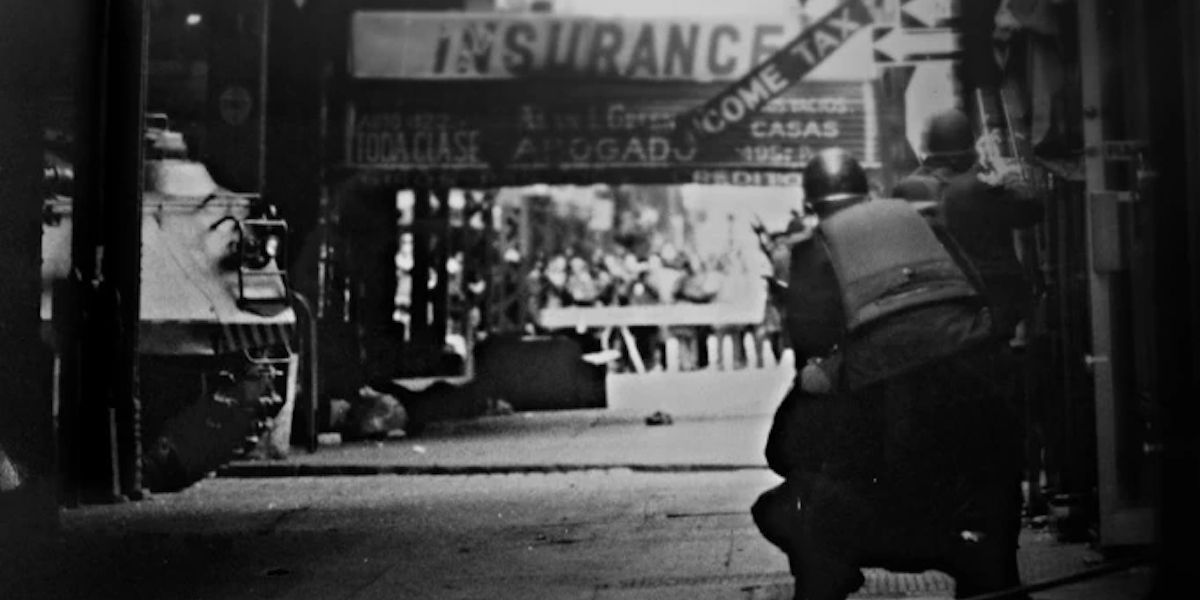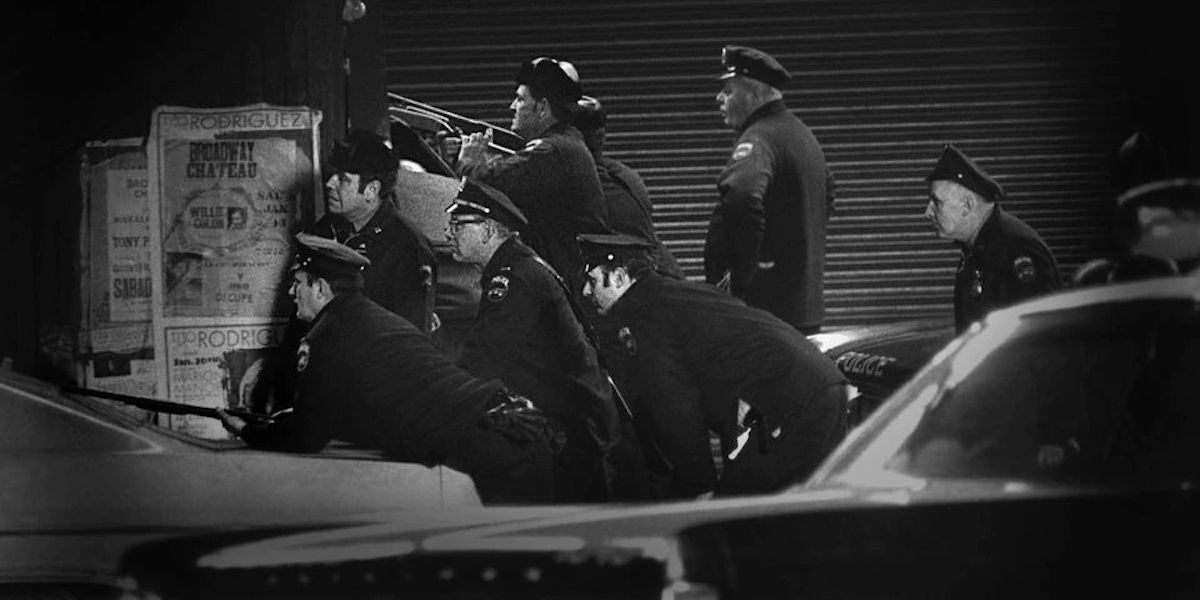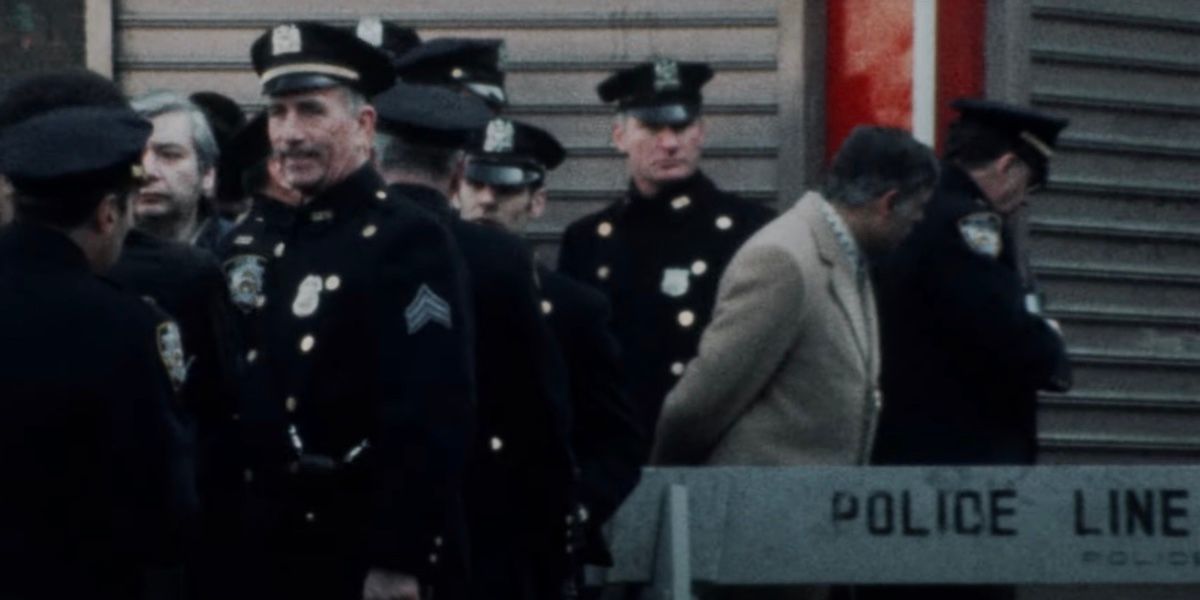One of the most recurring situations depicted on the big screen, that is essentially a subgenre in itself, is the police standoff. We've seen them in films like the classic Die Hard all the way to the more recent 892 and Ambulance. Such representations are geared towards being tense and thrilling with a sense of constant danger hanging just around every corner. It is all about the ratcheting up of the drama where we are rooting for one side to “win” in a struggle of wills. Hostages are taken, negotiation takes place, and, more often than not, it all ends up breaking down into chaos. Nuance is completely stripped away as the action and suspense is made paramount, losing sight of the people along the way. These are enjoyable movies as they draw us into a heightened emotional situation and leave us with a feeling that, even when people die, this is just the way these things go. Not only does this not challenge us as an audience, but it can give a false impression of what the reality of these situations like this can be. It is a form of myth-making that leaves a lasting impression in our collective consciousness.
The new documentary Hold Your Fire is a deconstruction of that myth. It is an expansive and illuminating look at one of the longest police stand-offs in history that took place over 47 hours at a sporting goods store in New York in 1973. It is a formally and thematically bold work that delves deeper into the nuances of the situation than any other film has. Originally premiering back at the Toronto International Film Festival it shows how everything unfolded with precision and meticulous attention to detail, eschewing artificial drama for something far more eye-opening. As a result, it pulls back the curtain on how these types of high-stakes situations actually occur and the more complicated aspects that go ignored. It is a self-reflective work that makes an explicit connection to how different it is from the typical Hollywood story. We see how the prevailing, and false, narrative about what such a standoff would actually look like influenced the preconceived notions of those involved.
It makes for a chilling yet necessary examination of how the stories we tell ourselves shape our understanding of a reality that has more shades of gray than we are led to believe. Central to this is the way director Stefan Forbes makes the background of those involved a feature of the story. He poses deeper questions about why people commit crimes in the first place beyond the common depiction we see of most standoffs. If you were to just watch a film like the aforementioned Die Hard, a fun story to be sure that is one of the most iconic films of its kind, you’d come away thinking that the people that do this are just bad men who revel in the crimes they’re committing. Even a more recent film as mentioned with 892 is perhaps more well-intentioned but still a work that paints with far too broad a brush of moral certainty that doesn’t come so easily in reality. There are easy enemies and good guys rushing in to save the day. Real life isn’t like that and there aren’t such easy moral answers. Instead, Forbes shows us how the men who committed this crime were doing so out of survival. It doesn’t absolve them of accountability for their actions, far from it, though it does help us to understand them and their struggles that brought them to this crisis.
Specifically, the film’s best segment entitled 'Why They Were There,' reveals the lives of the four Black men before they ever arrived at the store. Despite a leap to judgment about their intentions by the police, we learn that they were just ordinary people caught in a bad situation they entered into out of desperation. Salih Ali Abdullah, Shulab Abdula Raheem, Yusef Abdullah Almussudig, and Dawd A. Rahman are more like us than many of us would care to admit as it would require acknowledging our own fallibility. They were transit workers, artists, radio repairmen, and carpenters. As one jokingly says, they were squares. By teaching us about them, Forbes provides an all-too-rare interior look at these people that challenges us to reflect more completely on why this all happened. Yes, these men showed up at the store with the intent to rob it. However, we are asked to grapple with how people come to commit crimes. We see how they were victims of violence themselves, terrified and abandoned by a system that was meant to protect them. Their decision to take matters into their own hands hurt others, something they will all have to live with for the rest of their lives. Forbes asks us to look at how, as a collective, we failed them just as much and bear responsibility for providing greater support to those that are in need to avoid this from happening altogether.
There also is the question about how and what role police should have in a situation like this. When they initially come in guns blazing, the documentary shows how this not only escalates the situation, potentially hurting the hostages inside, but did lead to the death of a police officer. It has never been officially determined if the officer was killed by friendly fire, though it does leave us wondering what good it served to approach the situation in such an aggressive and disproportionate manner. While it certainly was more like the movies they’d seen to show up and just start shooting away without asking questions, Forbes makes clear that such an approach is not so exciting when it happens in reality. People’s lives are at stake and the priority should not be on what is the most thrilling way to reenact what you’ve seen in the movies. This isn’t cops and robbers, this is real life. Surprisingly, even many of the police officers interviewed seem to now recognize this. Many still don’t, saying rather concerning things that Forbes lets play out. He does this not to endorse their perspective, but to shine a light on just how pervasive some damaging attitudes remain.
On the polar opposite side of this is the closest thing the documentary has to a moral center in the form of the late police psychologist Harvey Schlossberg. Frequently demeaned by his peers in the department, it is through his commitment and compassion that lives are saved on this day as well as many others. It was in his work that the police approach shifted away from just using force to emphasizing psychology, firearm discipline, and patience to end a standoff. To hear Schlossberg, who passed away since the documentary finished, speak with a greater sense of empathy and understanding than most anyone else we see is a breath of fresh air. He understands how the image of the standoff is one that is built around people feeling like they can “win” over another when there really is no winning in this situation. Central to his efforts were moving away from this macho, shoot 'em up mentality that both police and the broader public got from film. While possibly a Herculean task, it got to the root of what is the purpose of police and whether our understanding of how they engage in a standoff is built upon a dangerous emphasis on dominance over all else.
Hold Your Fire, while being an undeniably tense experience, avoids falling into being about the spectacle at expense of the people. It does this by showing the tedium that often gets relegated to a footnote in movies in favor of the action. Actually being caught in this situation means just sitting for hours and hours, waiting with uncertainty about what would happen next. It strips away all this noise to show how challenging and difficult a situation like this can be, not letting us off the hook with bombastic framing. It is all very grounded, the tension coming from the fact that it is all drawing from what actually happened and all the fear that comes from reality. There is no need to exaggerate what is already a nightmare of a situation. We see it in the eyes of those he talks to and hear it in their voices as they recount the impact it left on them. In this, the film succeeds both at uncovering the complicated nature of the real world and capturing the feeling of it all. Where others have failed in this regard, prioritizing one at the expense of the other, Hold Your Fire is able to set the record straight.




